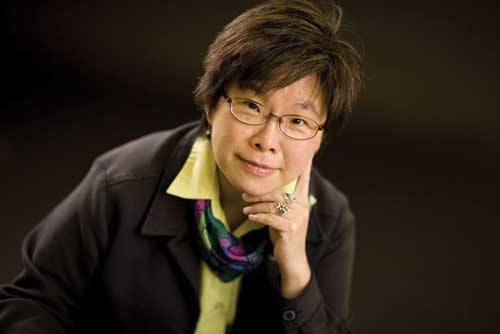Dr. Bonnie Lee is an associate professor in the Faculty of Health Sciences (Addictions Counselling). She obtained her doctoral degree from the University of Ottawa and is a registered marriage and family therapist and a clinical member and approved supervisor with the American Association for Marriage and Family Therapy.
Lee favours an ecological, human systems-paradigm in her teaching, clinical practice and research. Her driving force is the desire to enhance the lives and health of individuals in their contexts of family, culture and society. She has been an invited keynote speaker and workshop leader in Canada and internationally.
What first piqued your interest in your research discipline?
I have always been intrigued by questions about human nature, the universal elements and deep structure of healing and human transformation. For my doctorate, I was led to the work of Virginia Satir (1916-1988), a woman pioneer in family therapy.
Satir chose the path of staging experiential workshops rather than conducting academic research and writing for scholarship. However, the 'culture' she created with her followers and her style of workshops invited an ethnographic approach to further understanding of her work. This research led to the development of a four-dimensional theory centred on the construct of "congruence" which I systematized into a treatment model for problem gambling and other addictions. Currently I am formulating and testing a relational framework to understand addictions.

How is your research applicable in the 'real world'?
One of the joys of clinical research is that it engages both the mind and heart; it also brings together theory, empirical findings and practice. Such research can make an impact in services and in the alleviation of people's suffering in profound ways.
With a major 2004-2006 research grant from the Ontario Problem Gambling Research Centre, I trained 21 Ontario-based problem gambling counsellors in Congruence Couple Therapy (CCT), who then were able to apply the model in their treatment agencies with clients and enhance the work they do with couples.
The same model can be used with individuals, but when you work with couples, you change the primary relationship context for the client with addiction. Changes in this executive couple system in the family have spinoffs to the children, extended family and workplace relationships.
What is the greatest honour you have received in your career?
In 2010, my students nominated me for the Lethbridge YWCA Woman of Distinction Award (Spirit of Women). I feel honoured by the acknowledgment that came with this award.
How important are students to your research endeavours?
I have mentored many keen and bright undergraduate students in my research program. Several students were funded through the Chinook Summer Research Award and others elected to work with me through independent studies. It was not until my postdoctoral fellowships when I took part in a range of research projects through an apprenticeship, hands-on model under the tutelage of a Research Chair. So it is exciting to see how undergraduate students take to such opportunities early in their careers. Some aspire to graduate studies and research after such an experience; others say they have come to appreciate the rigour of research inquiry and want to refer to the evidence base in their practice.
If you had unlimited funds, which areas of research would you invest?
We live in a climate that places a premium on innovations. That's a good thing. An innovation is new knowledge that creates better products and processes that add value to services and outcomes. It can result in greater productivity, better and more output per input with payoffs in cost savings and improved quality of life.
To make this happen, I would put money into creating pathways for innovations from research to be transferred into practice and adoption by the health services system. This is a complex process that involves linking researchers, decision-makers and practitioners. For clinical research, it is a necessity to reach out beyond the ivory tower and engage those in the field for an innovation to ultimately take hold and bear fruit.
This story first appeared in the November issue of the Legend. For a look at the Legend in a flipbook format, follow this link.
